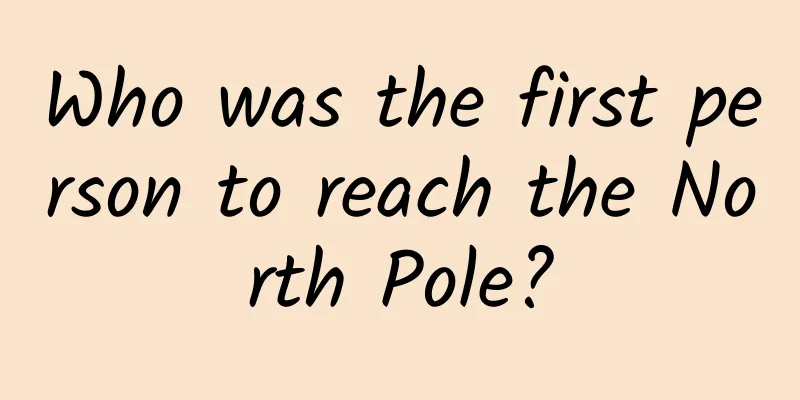Why are young people so keen on "metaphysics"? This psychological answer is really unexpected

|
In our daily lives, various metaphysical rituals are almost everywhere. Many people firmly believe that these small rituals can bring good luck to themselves. For example, it is easier to make a wish come true by closing your eyes and blowing out candles on your birthday, and praying for wealth at the Lama Temple where incense is the most effective (while praying that it will not be carried out incorrectly), etc. Some rituals are very personal. For example, some athletes will make some gestures during the game, believing that this will help them perform better. Copyright images in the gallery. Reprinting and using them may lead to copyright disputes. Why are so many people obsessed with metaphysics? Are these small rituals really useful? Of course, the reason why it is called "metaphysics" is because we ourselves know that these rituals are "not scientific", but from the perspective of psychological comfort, they have some positive effects . Today we will talk about it from the perspective of psychology. “Metaphysics” is human nature The "metaphysics" mentioned in this article refers more to the use of some "ritualistic" behaviors to help oneself calm down. "Ritual" refers to a series of behaviors or activities with a specific order and fixed form . They usually have symbolic meanings and are repeated at specific times or occasions. These various small rituals have penetrated into every corner of our lives. Quietly speaking, not only the general public likes these "metaphysics", but even the academic community that advocates science is no exception. Some researchers said that they also perform routine rituals when doing scientific research, such as dancing a specific dance before the experiment, paying tribute to cute dolls, or always listening to the same song. A behavioral ecologist named Walt Koenig once shared the rituals he performed when studying acorn woodpeckers. He believed that he could attract birds by making a special nasal sound, and after tying the birds with measuring equipment, he would kiss their heads and wish them "blessings as vast as the East Sea and longevity as great as the South Mountain." In this regard, Walt believed that although he knew that these practices would not increase the success rate of the research , he would still do it every time, because this was not only to celebrate the initial success of his research , but also a wish for the smooth completion of subsequent research . Is “metaphysics” really useful? From the perspective of "making wishes come true", "metaphysics" is of course useless. However, psychologists believe that rituals are actually a way to achieve psychological or emotional goals through repetitive and symbolic behaviors . Therefore, even if rituals are just a kind of "metaphysics" that is difficult to explain scientifically and may not have any practical effect, their significance often goes beyond the behavior itself. A psychology study used an experiment to explore why people perform ritualistic behaviors. The researchers recruited 62 college student volunteers and divided them into high-anxiety and low-anxiety groups through a test. Afterwards, the researchers gave each volunteer an ornament and told the volunteers in the high-anxiety group that they had 3 minutes to prepare a 5-minute speech about the ornament and needed to answer 7 questions given by the researchers. Later, a group of art experts would score their speeches to induce their high anxiety. The people in the low-anxiety group did not need to give a speech, but only needed to try to find the answers to these 7 questions in 3 minutes. Copyright images in the gallery. Reprinting and using them may lead to copyright disputes. Three minutes later, the researchers asked the two groups of volunteers to clean the already clean decoration before giving a speech (high anxiety group) or before leaving (low anxiety group) until they thought it was clean. The results showed that after the cleaning was completed, although the researchers told the high anxiety group that they did not need to give a speech, the high anxiety group did show stronger anxiety before the speech, accompanied by more repetitive and rigid cleaning movements. It seems that when faced with uncertain challenges, people will unconsciously do some small movements to relieve tension. Researchers believe that because repetitive, rigid, and unnecessary cleaning actions are the most common ritual behaviors, this is likely a spontaneous response to anxiety and uneasiness. Just as ancient people regarded solar and lunar eclipses as omens of dissatisfaction or disasters from gods and tried to appease the anger of gods through sacrifices and prayers, modern people are no longer feudal and superstitious, but when people face complex and uncontrollable environments, our sense of control and ability to predict the future will decrease. By doing some repetitive and deterministic rituals, we can enhance our inner sense of stability, so that we can face the uncertainty of the future more confidently and positively. Do you believe that metaphysics is really useful? Since believing in metaphysics is a normal reaction to changes and challenges, and many people believe in it, do these "metaphysical rituals" really have the effect of influencing future fortunes? Or do they simply affect the psychological state of the person involved? A study at Harvard University explored whether rituals can really affect real-life outcomes through a series of experiments. The researchers first found 252 college students and randomly assigned them to a ritual group and a non-ritual group. Their task was to sing a song in public. Before singing, the college students in the ritual group needed to complete a series of rituals, including drawing on paper, then sprinkling salt on the drawing, counting loudly to 5, and then crumpling the paper into a ball and throwing it into the trash can. At the same time, their heart rate changes were also measured throughout the process. The results showed that the ritual group scored higher on average in the singing task, and their heart rate increased because they knew they had to sing, but it dropped after performing the ritual. The non-ritual group scored lower on average in the singing task, and their heart rate remained high. We all know that an increase in heart rate means that people are in a state of tension and anxiety, which means that performing certain rituals can reduce people's anxiety and improve their task performance. In addition to the singing task, in order to more reliably verify their hypothesis, the researchers found 401 adult volunteers to complete a better quantified math task. They were also divided into a ritual group and a non-ritual group, and different levels of anxiety were created through different task descriptions. For example, "This is a difficult IQ test, and you will lose money if you answer it wrong" can cause high anxiety, while "This is a very interesting math puzzle, and you will get a bonus if you answer it correctly" will make people feel relatively relaxed. The experimental results are consistent with the singing task. Researchers believe that the reason why people believe that rituals really have magical effects is not because there is anything special about these actions themselves, but because we believe that they have a special meaning, and this belief makes you feel calmer and more confident. At the same time, rituals can also allow us to focus on a series of actions, thereby diverting attention from the source of anxiety, or reducing anxiety by providing a sense of control. When our anxiety is reduced and our mentality becomes more relaxed, we can better exert our original strength. So, on the surface it seems that metaphysics makes us luckier, but this is only because we ignore the changes in our mentality. Those "little actions" of top athletes may have played such a role. In short, when we face some challenging and uncertain things, doing some rituals can indeed help us deal with them better, but this is not because the rituals really have a "metaphysical effect", but because they make our mentality more peaceful and relaxed. In addition, there are many other methods that can play the same role, such as: Do a few minutes of deep breathing exercises when you are nervous . Deep breathing can trigger the body's relaxation response , lower heart rate and blood pressure, and reduce anxiety reactions; List some self-affirming sentences or famous quotes, such as Napoleon's famous quote "You have all the power to realize your dreams". Repeating these sentences to yourself every morning or when you are nervous can strengthen your inner beliefs and make you more confident. · Cultivate hobbies or do activities that you like, such as painting, cooking, reading or gardening. These activities can provide us with relaxation and pleasure , as well as a sense of accomplishment and self-satisfaction , making us more resilient in the face of difficulties and less likely to become overly nervous and anxious. To sum up, "metaphysics" cannot directly help you succeed, but it can help you relax. For you who have worked hard enough, a little "metaphysics" may help you face challenges better. References [1] Lang, M., Krátký, J., Shaver, JH, Jerotijević, D., & Xygalatas, D. (2015). Effects of anxiety on spontaneous ritualized behavior. Current Biology, 25(14), 1892-1897. [2] Brooks, AW, Schroeder, J., Risen, JL, Gino, F., Galinsky, AD, Norton, MI, & Schweitzer, ME (2016). Don't stop believing: Rituals improve performance by decreasing anxiety. Organizational Behavior and Human Decision Processes, 137, 71-85. Planning and production Author: Chen Yufeng, Master of Developmental and Educational Psychology Reviewer: Yang Xiaoyang, Associate Professor, School of Psychology, Sichuan Normal University Planning丨Ding Zong Editor: Ding Zong Proofread by Xu Lai and Lin Lin The cover image and the images in this article are from the copyright library Reprinting may lead to copyright disputes |
<<: Who is guaranteed a job after graduation? This animal "school" is not ordinary
>>: China's three generations of trains in one frame! See China's railway speed counterattack
Recommend
10 practices from over 30 years of coding experience
So, how to write good code? Good code is easier t...
Xiaomi Notebook Air: The hard part is not just the ridiculous PPT
On July 27, Xiaomi, a well-known domestic mobile ...
How much does it cost to rent a BGP server in Beijing?
How much does it cost to rent a BGP server in Bei...
New changes in marketing in 2022
The first wave of marketing boom in 2022 was born...
Code practice of background positioning upload
[[142068]] Preface As mentioned in the previous a...
Meizu MX4 Pro becomes the first beneficiary of 2K screen technology iteration
As one of the most important components of mobile...
Marketing promotion based on business logic
For a long time, advertising and marketing have b...
Towards the stars and the sea! An article on the differences between the Wentian Experimental Module and the Tianhe Core Module
Two years ago, on July 23, 2020, the Long March 5...
Why iPhone X may not be the highlight of Apple's press conference?
What is the real highlight of this Apple conferen...
Kuaishou, you can record everyone’s life, but please don’t distort our values!
"In life, there is no distinction between hi...
Kas Academy "Online Special Class for Douyin Merchants' Self-broadcasting Operators" Core methodology for brand merchants' self-broadcasting, quickly popularizing the live broadcast room
Kas Academy "Online Special Class for Douyin...
30 guidelines for brand marketing in the post-epidemic stage
Recently, a large number of companies have resume...
How to do Christmas marketing? Here are 3 ways and 10 cases
The afterglow of “Double Twelve” has not yet fade...
Practical case: How to build high-quality user portraits?
If there is any core ability that a product manag...









